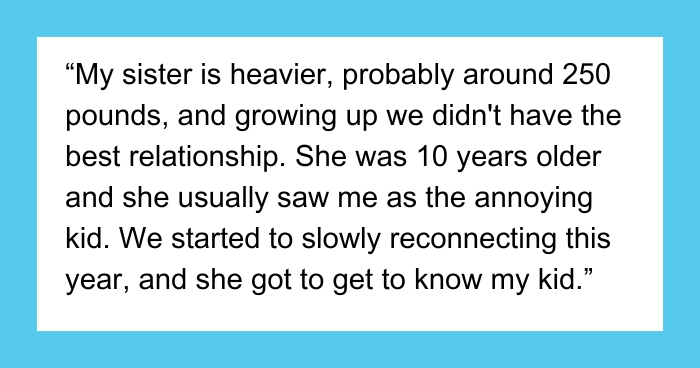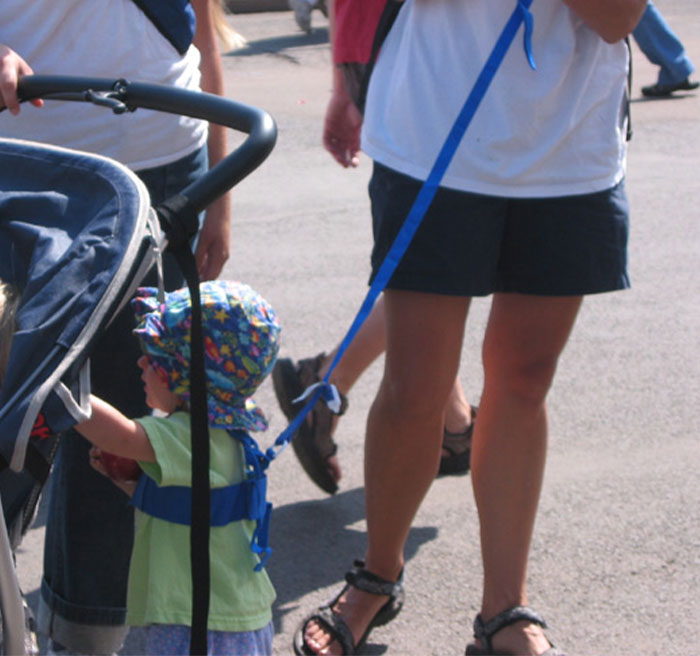Am I Wrong for Telling My Sister She’s Too Overweight and Lazy to Babysit My Child?
The situation revolves around a mother, the Original Poster (OP), who is questioning whether she was in the wrong for confronting her sister about putting her 5-year-old daughter, Rebecca, on a child leash during a sleepover. The sister, who struggles with her weight and mobility, claimed the leash was necessary to keep up with Rebecca.
However, OP was outraged, believing the leash was an overreaction for a child who typically prefers playing quietly. This led to a heated argument where OP accused her sister of being “too heavy and lazy” to care for her child, ultimately deciding to limit her sister’s contact with Rebecca. Their mother sided with the sister, further complicating matters.
Read for more info Reddit
A parent’s instinct is to advocate for what they believe is best for their child.
This parent shared their experience of arguing with their sister over her use of a child leash on her niece.








Opinions on child leashes are often divided into two distinct camps.
Child leashes, while controversial, are designed to ensure the safety of young children, especially in crowded or potentially dangerous environments. According to child safety experts, these tools can provide peace of mind for caregivers who may struggle to keep up with active children or when managing multiple tasks. However, critics argue that using a leash can impact a child’s sense of autonomy and trust, particularly if the restraint is applied unnecessarily or as a substitute for attentive care.
The appropriateness of using a child leash depends on the needs and personality of each individual child.
In this case, Rebecca’s behavior, as described by OP, doesn’t align with the typical scenarios for using a leash. If she prefers playing quietly and isn’t prone to running off, the decision to leash her seems excessive. While the sister’s physical limitations might explain her choice, it raises broader questions about suitability as a caregiver. Research from organizations like the National Association for the Education of Young Children (NAEYC) emphasizes the importance of caregivers being able to actively engage with and supervise children in a way that promotes their development and emotional well-being.
On the other hand, OP’s reaction may have crossed a line by focusing on her sister’s weight and labeling her as “lazy.” Such language can strain family relationships and shift focus away from the core issue: ensuring Rebecca’s care is appropriate and respectful. Productive communication might involve addressing the incident from the child’s perspective, expressing concern over the leash, and exploring alternative methods of care or activities better suited to the sister’s abilities.
The OP answered some comments and provided more information about the sister and the daughter







AITA Verdict?
Based on the information provided, OP likely falls into the “Not the A-hole” category for prioritizing her child’s well-being and reacting to an unusual decision that could be seen as inappropriate. However, the delivery of her criticism—focusing on her sister’s weight and character—was unnecessarily harsh and risks alienating her sister further. A more constructive approach could have preserved the budding relationship while addressing the care concerns.






